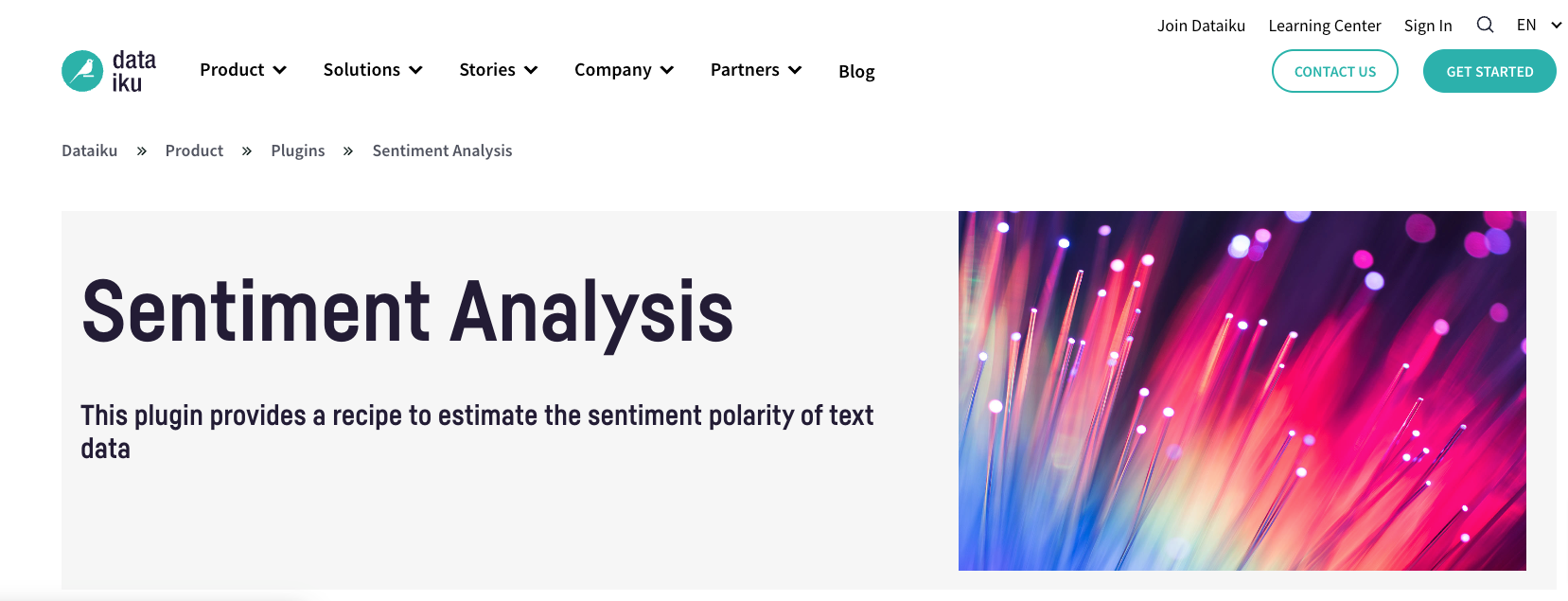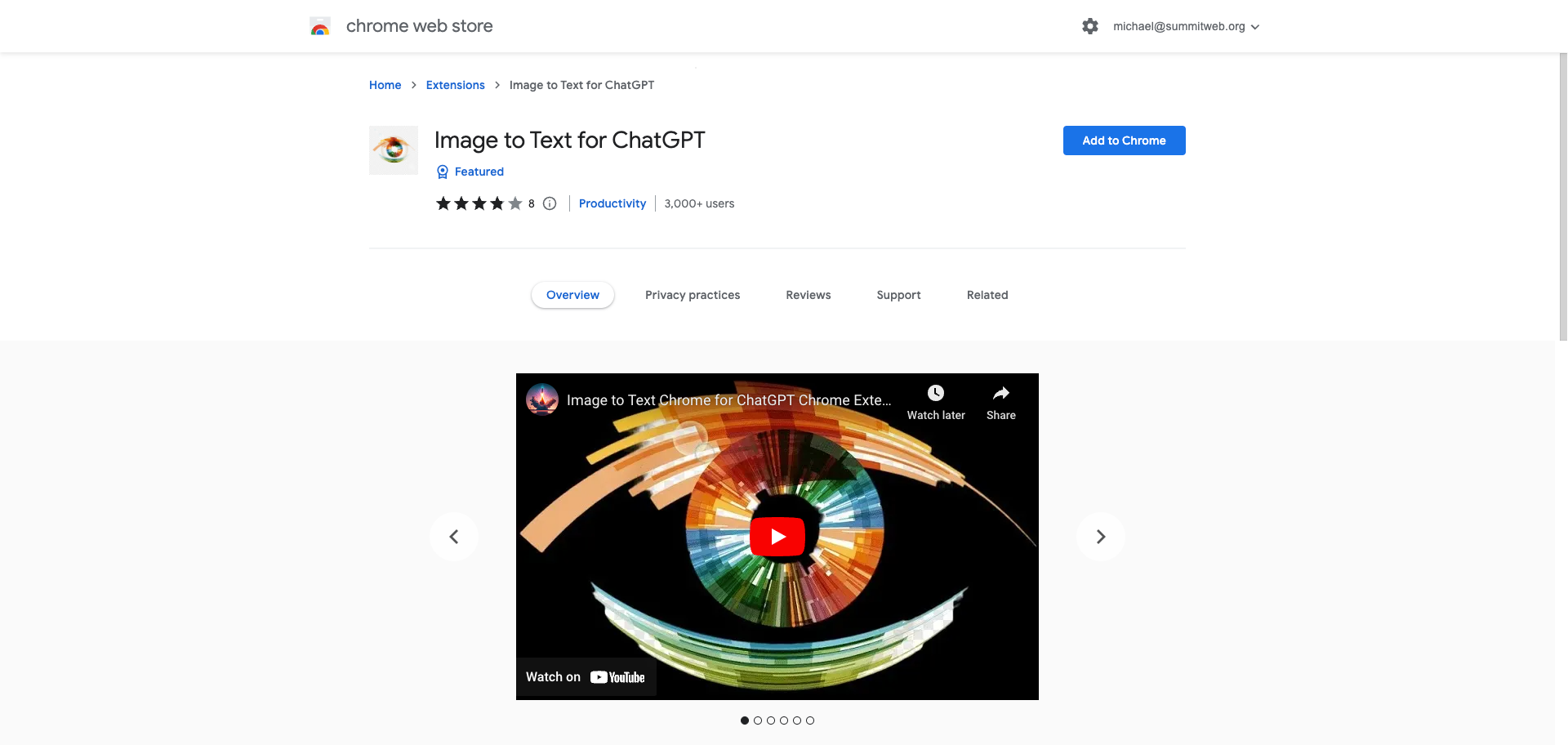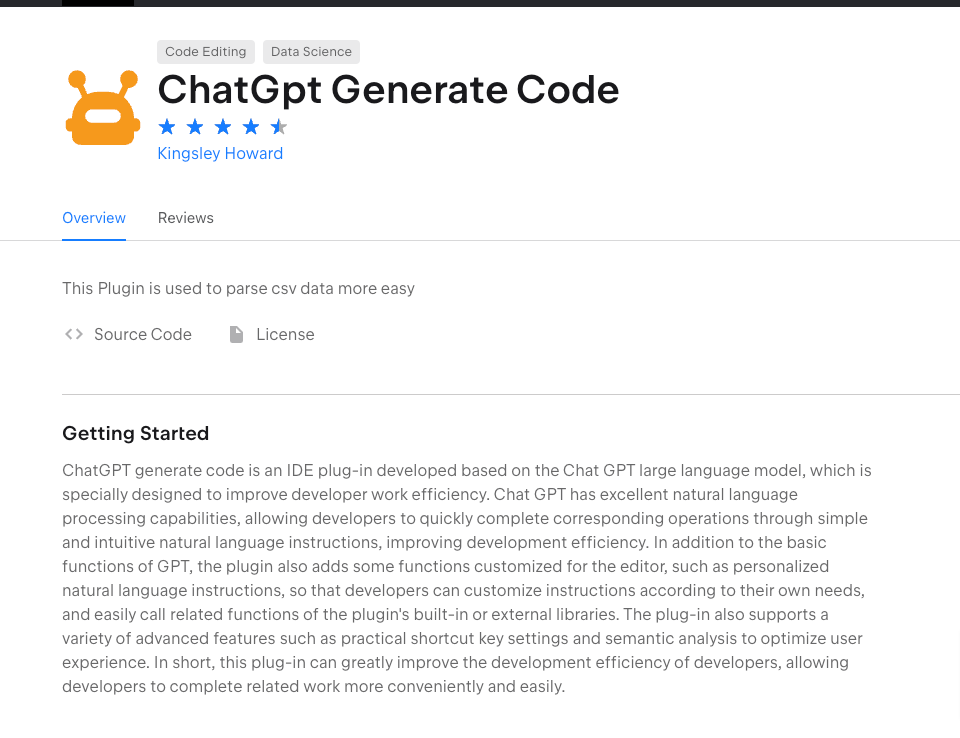Do you want to enhance your ChatGPT experience? Look no further than ChatGPT plugins! These powerful tools provide added functionality and customization options to make your conversations even more engaging and productive. In this article, we will dive into the benefits of using ChatGPT plugins, explore various types of plugins available, guide you through the setup process, troubleshoot common issues, and even show you how to automate your ChatGPT plugin for increased productivity. Let’s begin!
The Benefits of Using ChatGPT Plugins
ChatGPT plugins open up a world of possibilities for interacting with the language model. Here are some key benefits:
- Enhanced Capabilities: Plugins allow you to extend the functionality of ChatGPT by adding specialized features, such as language translation, sentiment analysis, or even image recognition.
- Customization: With plugins, you can tailor ChatGPT to suit your specific needs. Adjust its behavior, prompts, or responses to align with your requirements and preferences.
- Improved Efficiency: Plugins can automate repetitive tasks, saving you valuable time and effort. Whether it’s generating code snippets, summarizing text, or performing data analytics, ChatGPT plugins have got you covered.
Now that we understand the benefits, let’s explore the different types of ChatGPT plugins available.
1. Language Translation Plugin:
The language translation plugin is a powerful tool that allows you to communicate with people from different parts of the world without language barriers. With this plugin, you can easily translate text in real-time, making global conversations seamless and effortless. Whether you’re working on an international project or simply trying to connect with someone from a different culture, the language translation plugin will be your go-to solution
2. Sentiment Analysis Plugin:
Understanding the sentiment behind text is crucial in various domains, such as customer service, social media monitoring, and market research. The sentiment analysis plugin empowers ChatGPT to analyze the emotions and opinions expressed in text, providing valuable insights. By leveraging this plugin, you can gauge customer satisfaction, track public sentiment towards your brand, or even identify potential issues before they escalate.
3. Image Recognition Plugin:
Visual information plays a significant role in our daily lives, and the image recognition plugin enables ChatGPT to process and understand images. By integrating this plugin, you can describe images, identify objects, recognize faces, or even generate captions for visual content. Whether you’re building a chatbot for an e-commerce platform or developing an AI assistant for image-based tasks, the image recognition plugin will greatly enhance the capabilities of ChatGPT.
4. Code Generation Plugin:
Writing code can be time-consuming and error-prone, but with the code generation plugin, you can automate the process. This plugin equips ChatGPT with the ability to generate code snippets based on your requirements. Whether you need a quick solution for a programming problem or want to automate repetitive coding tasks, the code generation plugin will save you valuable time and effort.
5. Text Summarization Plugin:
When dealing with large amounts of text, summarizing the content can be incredibly helpful. The text summarization plugin allows ChatGPT to condense lengthy articles, reports, or documents into concise summaries. By leveraging this plugin, you can quickly extract key information, identify important points, and get a high-level overview of the text, saving you time and enabling faster decision-making.
6. Data Analytics Plugin:
Data analysis is a critical component in various industries, and the data analytics plugin empowers ChatGPT to perform basic data analysis tasks. With this plugin, you can ask ChatGPT to analyze datasets, calculate statistics, visualize trends, or even provide insights based on the data. Whether you’re a data scientist, business analyst, or simply curious about exploring data, the data analytics plugin will be a valuable asset in your toolkit.
By leveraging these different types of ChatGPT plugins, you can unlock the full potential of the language model and enhance its capabilities to suit your specific needs. Whether you’re looking to streamline your workflow, gain valuable insights, or automate tasks, ChatGPT plugins provide a versatile and customizable solution.
Exploring Different Types of ChatGPT Plugins
ChatGPT plugins come in a wide variety, catering to different use cases and domains. Here are a few popular plugin categories:
-
- Language Translation: These plugins enable ChatGPT to translate text between languages seamlessly. Communicate with people from diverse backgrounds without any language barriers.
Language translation plugins are incredibly useful in today’s globalized world. They leverage advanced machine learning algorithms to provide accurate and efficient translations. Whether you are traveling to a foreign country or working with international clients, these plugins can help you bridge the communication gap. Imagine being able to have real-time conversations with people who speak different languages, all with the help of ChatGPT.
These plugins support a wide range of languages, from commonly spoken ones like English, Spanish, and Mandarin, to less widely spoken languages such as Swahili, Icelandic, or Tagalog. With the ability to seamlessly translate text, you can explore new cultures, connect with people from around the world, and break down language barriers like never before.
-
- Content Generation: Plugins in this category offer creative writing assistance, helping ChatGPT generate engaging stories, poems, or even song lyrics.
Content generation plugins are a boon for writers, poets, and creative enthusiasts. They provide a helping hand when it comes to brainstorming ideas, overcoming writer’s block, or simply exploring new avenues of creativity. With these plugins, ChatGPT becomes your trusty collaborator, assisting you in crafting captivating stories, evocative poems, or catchy song lyrics.
Imagine being able to effortlessly generate unique storylines, develop complex characters, or compose beautiful verses with the assistance of ChatGPT. These plugins can inspire you, spark your imagination, and take your creative endeavors to new heights. Whether you are an aspiring novelist, a seasoned poet, or a songwriter looking for that perfect hook, content generation plugins can be your secret weapon.
-
- Productivity Tools: Streamline your workflow with plugins that assist in tasks like scheduling, note-taking, or generating to-do lists. Say goodbye to juggling multiple applications!
Productivity tools are designed to make your life easier and more organized. With these plugins, ChatGPT becomes your personal assistant, helping you manage your tasks, appointments, and notes efficiently. No more switching between different applications or struggling to keep track of everything.
Imagine being able to ask ChatGPT to schedule a meeting for you, take notes during a conference call, or even generate a comprehensive to-do list for the day. These plugins can help you stay focused, prioritize your tasks, and optimize your productivity. Whether you are a busy professional, a student with a hectic schedule, or someone who simply wants to stay organized, productivity tools can be a game-changer.
-
- Domain-Specific Plugins: These plugins cater to specific industries or professions. For example, there are plugins tailored for legal document review, medical query resolution, or even game strategy assistance.
Domain-specific plugins are designed to meet the unique needs of various industries and professions. They leverage specialized knowledge and expertise to provide targeted assistance in specific domains. Whether you are a lawyer, a doctor, or a gamer, there’s a plugin out there that can enhance your work or hobby.
Imagine having ChatGPT as your legal research assistant, helping you review complex legal documents, analyze case precedents, or draft contracts. Or imagine ChatGPT as your medical consultant, providing accurate and up-to-date information about diseases, symptoms, or treatment options. These plugins can save you time, provide valuable insights, and improve your decision-making process.
Even gamers can benefit from domain-specific plugins. Imagine having ChatGPT as your gaming buddy, offering strategies, tips, and tricks to help you level up, conquer challenging quests, or dominate in multiplayer matches. These plugins can enhance your gaming experience, help you become a better player, and connect you with a community of like-minded gamers.
With such a wide range of plugins available, you are sure to find one that aligns with your needs. Once you’ve chosen a plugin, it’s time to set it up and start reaping the benefits!
Setting Up Your ChatGPT Plugin
Getting started with a ChatGPT plugin is a breeze. Follow these steps:
- Plugin Selection: Choose a plugin that aligns with your desired functionality.
- Plugin Installation: Install the plugin by following the provided instructions. This typically involves adding some code or configurations to your existing ChatGPT implementation.
- Plugin Integration: Integrate the plugin into your ChatGPT interface or application. This may require making API calls, defining prompts, or providing necessary input/output formats. Testing and Iteration: Test the plugin’s functionality, making necessary adjustments or refinements based on the expected output and user experience.
Now that you have successfully set up the plugin, let’s dive into some additional details to enhance your understanding of each step:
1. Plugin Selection: When choosing a plugin, it’s important to consider the specific functionality you want to add to your ChatGPT. There are various plugins available, ranging from language translation to sentiment analysis. Take the time to research and select the plugin that best suits your needs.
2. Plugin Installation: Installing the plugin is a crucial step in the setup process. The provided instructions will guide you through the installation process, which may involve adding code snippets or modifying existing configurations. Ensure that you follow the instructions carefully to avoid any issues.
3. Plugin Integration: Integrating the plugin into your ChatGPT interface or application requires a deeper understanding of the plugin’s functionality and the necessary integration methods. Depending on the plugin, you may need to make API calls, define prompts, or format input/output data. Familiarize yourself with the plugin’s documentation to ensure a seamless integration.
4. Testing and Iteration: Once the plugin is integrated, it’s time to test its functionality. Start by providing sample inputs and evaluating the outputs. This testing phase helps identify any issues or areas for improvement. Iterate on the plugin’s configuration, prompts, or input/output formats as needed to achieve the desired results.
With the plugin successfully set up, it’s important to familiarize yourself with common troubleshooting steps to ensure smooth usage. By understanding these troubleshooting techniques, you can quickly address any issues that may arise during the usage of the plugin.
Troubleshooting Common ChatGPT Plugin Issues
Although ChatGPT plugins are generally robust, you may encounter certain issues during usage. Here are some common problems and their solutions:
-
- Authentication Errors: Double-check your API keys or authentication credentials to ensure they are correctly configured.
Authentication errors can be frustrating, but they are often easy to fix. Make sure you have copied and pasted your API keys correctly, paying attention to any special characters or spaces. If you’re still having trouble, reach out to the plugin’s support team for assistance. They can guide you through the authentication process and help you troubleshoot any issues.
-
- Input Formatting: Verify that your input data is in the correct format expected by the plugin. Refer to the plugin’s documentation for specific guidelines.
Input formatting is crucial for the plugin to understand and process your data accurately. Take the time to carefully review the plugin’s documentation and guidelines for input formatting. Ensure that you are providing the correct data types, structures, and any necessary parameters. If you’re unsure about the formatting requirements, don’t hesitate to reach out to the plugin’s support team for clarification.
-
- Plugin Compatibility: Plugins may have compatibility issues with certain versions of ChatGPT. Ensure that your plugin and ChatGPT versions are compatible by checking the documentation or seeking assistance from the plugin’s support channels.
Compatibility issues can arise when using different versions of ChatGPT and plugins. To avoid such problems, always refer to the plugin’s documentation or the official compatibility matrix provided by the plugin’s developers. If you encounter any compatibility issues, reach out to the plugin’s support channels for guidance. They can help you identify the version mismatch and provide instructions on how to resolve it.
-
- Insufficient Resources: Some resource-intensive plugins may require additional computational power or memory. Consider upgrading your infrastructure or optimizing your code to handle the plugin’s demands.
Resource-intensive plugins can put a strain on your system’s computational power and memory. If you’re experiencing performance issues or encountering errors related to insufficient resources, it may be time to upgrade your infrastructure. Consider increasing the memory or processing power of your system to ensure smooth plugin execution. Additionally, optimizing your code can help reduce resource usage and improve overall performance. Look for any unnecessary computations or memory leaks that can be addressed.
By following these troubleshooting tips, you can quickly resolve most issues and maximize the benefits of your ChatGPT plugins. But why stop there? Let’s take it a step further and explore automation possibilities for enhanced productivity!
Automation is a powerful tool that can streamline your workflow and save you valuable time. With ChatGPT plugins, you can automate various tasks, such as customer support, content generation, or data analysis. By leveraging the capabilities of ChatGPT and integrating it with other tools and systems, you can create powerful automation solutions tailored to your specific needs.
Imagine having a chatbot that can handle customer inquiries, provide personalized recommendations, and even process transactions seamlessly. With ChatGPT plugins, you can extend the capabilities of your chatbot and make it more intelligent and efficient.
Furthermore, automation can be applied to content generation. Whether you need to generate blog posts, product descriptions, or social media captions, ChatGPT plugins can assist you in creating high-quality content quickly. By automating content generation, you can free up your time to focus on other important aspects of your business.
Data analysis is another area where automation can be immensely beneficial. ChatGPT plugins can help you analyze large datasets, extract insights, and generate reports automatically. This can save you countless hours of manual data processing and allow you to make data-driven decisions more efficiently.
As you explore the possibilities of automation with ChatGPT plugins, keep in mind that it’s important to strike a balance between automation and human touch. While automation can greatly enhance productivity, it’s essential to maintain a personalized and human-centric approach in certain situations. Finding the right balance will ensure that you leverage the power of automation while still delivering a great user experience.
Automating Your ChatGPT Plugin for Increased Productivity
Automation is the key to unlocking the true potential of ChatGPT plugins. By automating plugin usage, you can save time, reduce manual effort, and achieve greater productivity. Here’s how:
- Chatbot Integration: Integrate ChatGPT with popular chatbot platforms like Facebook Messenger, Slack, or Discord. This enables your plugins to provide real-time assistance and engage with users seamlessly.
- Scripting and Workflows: Leverage scripting or workflow automation tools to orchestrate complex interactions between ChatGPT and plugins. Use conditional logic, API triggers, or user input to trigger specific plugins and generate dynamic responses.
- Scheduled Tasks: Schedule recurring plugin tasks, such as data processing or report generation, to run automatically at specified intervals. This ensures your plugins work tirelessly in the background, freeing up your time for more important tasks.
- Integration with Other Systems: Integrate your ChatGPT plugins with existing systems or applications, allowing seamless data exchange and enhancing overall efficiency. For example, you can integrate a language translation plugin with your customer support ticketing system to facilitate multilingual customer interactions.
By automating your ChatGPT plugins, you can transform your workflow and achieve new levels of efficiency and productivity. Experiment with different automation techniques to find what works best for you!
In conclusion, ChatGPT plugins offer a wealth of opportunities to enhance your conversational AI experience. From specialized functionalities to increased automation, plugins empower you to take control of your interactions with ChatGPT. So why wait? Dive into the world of plugins and explore the endless possibilities awaiting you!








